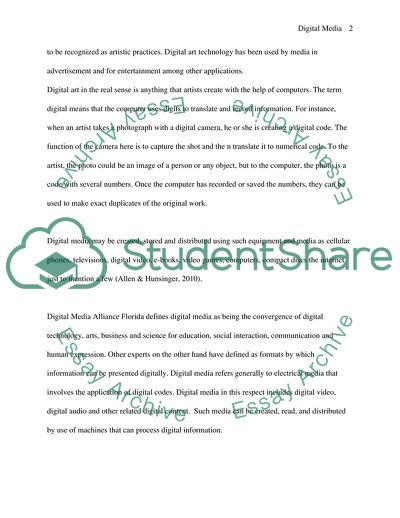Cite this document
(Digital Media and Remix Culture Term Paper Example | Topics and Well Written Essays - 2000 words, n.d.)
Digital Media and Remix Culture Term Paper Example | Topics and Well Written Essays - 2000 words. https://studentshare.org/media/1739975-digital-media-critical-analysis-remix-cultures
Digital Media and Remix Culture Term Paper Example | Topics and Well Written Essays - 2000 words. https://studentshare.org/media/1739975-digital-media-critical-analysis-remix-cultures
(Digital Media and Remix Culture Term Paper Example | Topics and Well Written Essays - 2000 Words)
Digital Media and Remix Culture Term Paper Example | Topics and Well Written Essays - 2000 Words. https://studentshare.org/media/1739975-digital-media-critical-analysis-remix-cultures.
Digital Media and Remix Culture Term Paper Example | Topics and Well Written Essays - 2000 Words. https://studentshare.org/media/1739975-digital-media-critical-analysis-remix-cultures.
“Digital Media and Remix Culture Term Paper Example | Topics and Well Written Essays - 2000 Words”. https://studentshare.org/media/1739975-digital-media-critical-analysis-remix-cultures.


